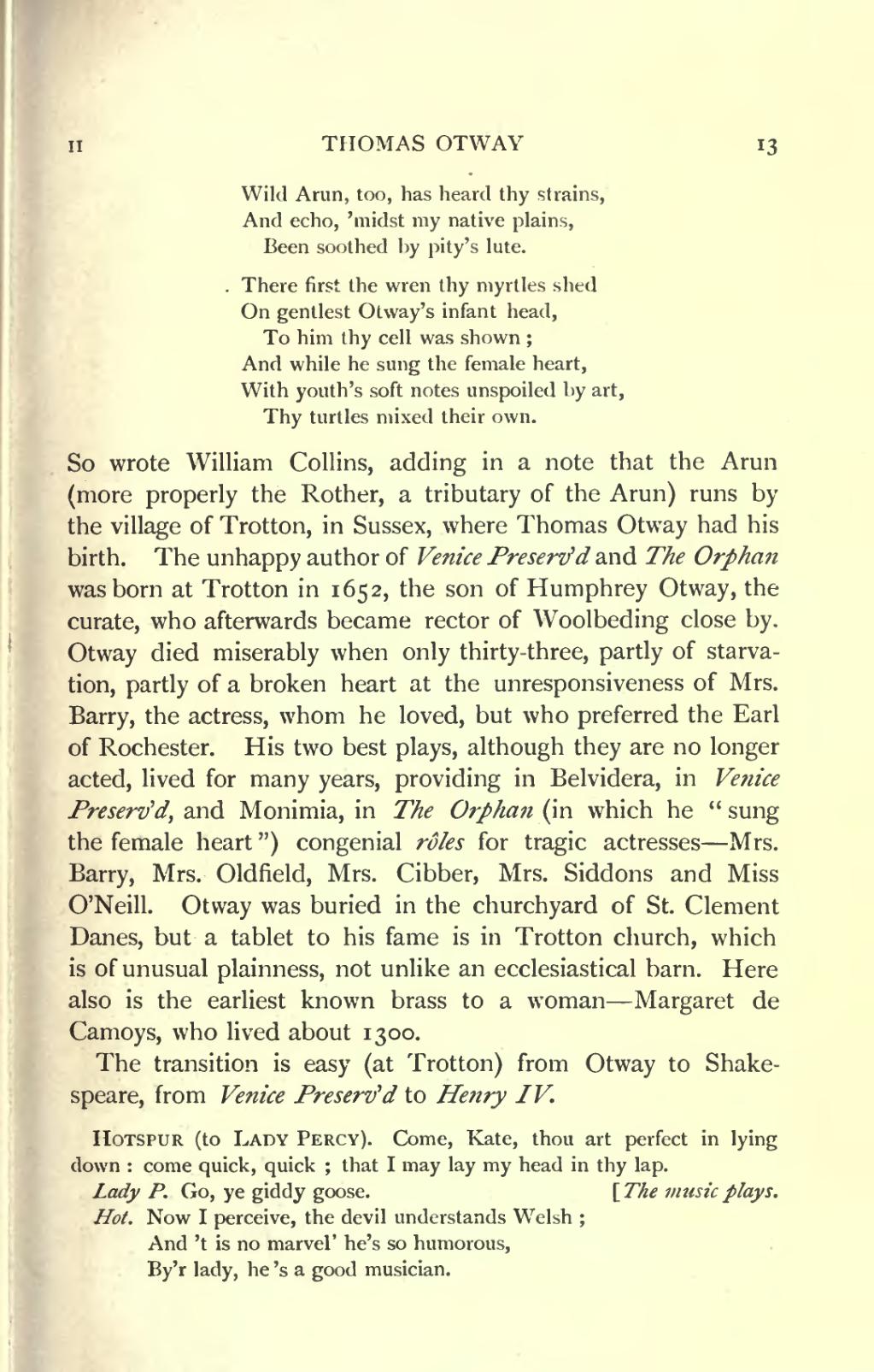Wild Arun, too, has heard thy strains,
And echo, 'midst my native plains,
Been soothed by pity's lute.
There first the wren thy myrtles shed
On gentlest Otway's infant head,
To him thy cell was shown;
And while he sung the female heart,
With youth's soft notes unspoiled by art,
Thy turtles mixed their own.
So wrote William Collins, adding in a note that the Arun (more properly the Rother, a tributary of the Arun) runs by the village of Trotton, in Sussex, where Thomas Otway had his birth. The unhappy author of Venice Preserv'd and The Orphan was born at Trotton in 1652, the son of Humphrey Otway, the curate, who afterwards became rector of Woolbeding close by. Otway died miserably when only thirty-three, partly of starvation, partly of a broken heart at the unresponsiveness of Mrs. Barry, the actress, whom he loved, but who preferred the Earl of Rochester. His two best plays, although they are no longer acted, lived for many years, providing in Belvidera, in Venice Preserv'd and Monimia, in The Orphan (in which he "sung the female heart") congenial rôles for tragic actresses—Mrs. Barry, Mrs. Oldfield, Mrs. Cibber, Mrs. Siddons and Miss O'Neill. Otway was buried in the churchyard of St. Clement Danes, but a tablet to his fame is in Trotton church, which is of unusual plainness, not unlike an ecclesiastical barn. Here also is the earliest known brass to a woman—Margaret de Camoys, who lived about 1300.
The transition is easy (at Trotton) from Otway to Shakespeare, from Venice Preserv'd to Henry IV.
Hotspur (to Lady Percy). Come, Kate, thou art perfect in lying down: come quick, quick; that I may lay my head in thy lap.
Lady P. Go, ye giddy goose.[The music plays.
Hot. Now I perceive, the devil understands Welsh;
And 't is no marvel' he's so humorous,
By'r lady, he's a good musician.
